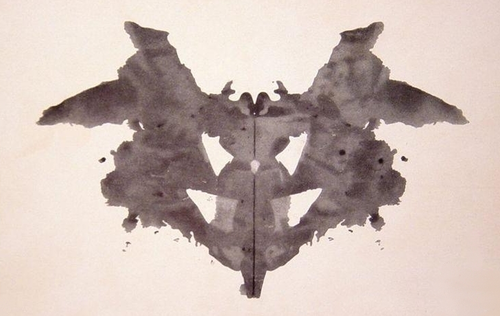
Authored by Jonathan Turley via jonathanturley.org,
Below is my column in the Hill on the release of the affidavit leading to the raid on Mar-a-Lago. The redacted affidavit did confirm key points, but the most interesting elements could be what did not happen. That may change now that a federal judge has finally indicated that a special master may be appointed. Since the start of the controversy over the Mar-a-Lago raid, I have called for the release of a redacted affidavit and the appointment of a special master to sort through the seized material, including alleged attorney-client privileged material. Such an appointment could result in additional material being returned to the Trump team and a release of additional information on what was seized under this exceptionally broad warrant.
Here is the column:
With Friday’s release of the redacted affidavit from the FBI’s search of Mar-a-Lago, the largest Rorschach test in history seemed to play out on cable television. Instead of ink blots, pundits and politicians stared at pages of solid black lines and offered strikingly different “ah-ha” observations. Some called the matter effectively closed and that, with the redacted affidavit, we have now “finally seen enough. Donald Trump will be indicted by a federal grand jury.”
Likewise, for former Mueller top aide Andrew Weissmann, the affidavit meant one thing — that “the former president is going to be prosecuted.” (Of course, Weissmann once expressed certainty that Donald Trump would pardon himself by his last day in office.)
There already are a plethora of news and opinion columns focusing on the five things we learned from the redacted affidavit. Equally telling, however, is what did not happen with the affidavit’s release.
Due to a series of advance leaks from the government, we already knew some of the affidavit’s contents and the results of the search. The redacted affidavit did confirm important details on past communications and the documents that were previously retrieved from Mar-a-Lago, including the discovery of a large amount of classified documents, from the relatively mundane “confidential” to the highly classified “Top Secret/Sensitive Compartmented Information” (TS/SCI).
It also was clear that a criminal case could be brought on such allegations, though there is considerable factual and legal uncertainty about any conviction or appeal.
Not clear is whether the Justice Department intends to prosecute the former president. It is entirely possible that beneath the affidavit’s blacked-out lines lurks evidence that the government is building a case for prosecution. However, if one were to go by the unredacted portions, it is also possible this was just a heavy-handed effort to retrieve government material from Mar-a-Lago.
More striking are three things that did not happen.
The most remarkable thing that occurred on Friday is that nothing occurred on Friday. Only a week before, the Justice Department insisted that the court should not release a single line of the affidavit and that any substantive disclosure would unleash a parade of horribles, from damaging national security to sacrificing witnesses.
For those of us who have litigated cases against the Justice Department, it was an all-too-familiar claim by a department notorious for over-classification and over-redaction arguments.
For a week, media pundits mouthed the same exaggerated claims and challenged those of us who argued that it was clearly possible to release a redacted affidavit; liberals suddenly shuddered at the thought of doubting the Justice Department. Sites like Above the Law claimed that calls for greater transparency and a redacted affidavit were akin to “publishing the nuclear codes on the back of every milk carton.” Even after the judge agreed that a redacted affidavit could be released in the public interest, experts balked at the notion as dangerous in light of Justice’s earlier warnings.
As I noted earlier, affidavits contain background legal and factual sections that ordinarily can be unsealed without disclosing sensitive information. That is precisely what happened here. Pages of the affidavit were released that confirmed the legal claims as well as some of the factual allegations. In other words, the Justice Department misrepresented the contents of the affidavit and the dangers of redaction. As in other cases, it falsely claimed that no disclosures could be made without redacting so much as to make the document unintelligible. Yet, no one seemed to notice.
Something else did not happen. In rejecting Justice’s claims that nothing in the affidavit should be released, U.S. Magistrate Bruce Reinhart set out an appellate process by which he could overrule Justice in ordering disclosures beyond those proposed by the department. Given Justice’s well-documented history of over-redacting, it was a promising start.
Then, over the course of the week, media reported a series of leaks of information that clearly was part of the affidavit. At the same time that the government was demanding total secrecy, it was selectively leaking details seemingly designed to put Trump on the defensive.
Given that history, there was every reason for the court to be skeptical of the first cut of the redactions. Yet the court accepted the government’s redactions without question. It effectively found that the Justice Department hit the Goldilocks spot on the first try in getting the redactions just right to maximize disclosures.
This is where those black lines actually may tell us something. While there were key points disclosed, the redactions of the timeline of events notably ended exactly where the leaked information ended. Many of us had stated that the critical period of interest was between June 8 and after the raid on August 8. The June date involved a demand for greater security on the storage room at Mar-a-Lago, with which the Trump team complied. The redacted affidavit only added one day of new information in noting that on June 9, Trump’s counsel acknowledged the receipt of their letter. Then the black-out followed. That information could explain why a raid was needed, as opposed to a second subpoena or a more tailored warrant.
There is every reason to believe that what followed contained some facts that could be released on the FBI’s communications with the Trump team or the breakdown of such communications. After all, the Trump team already knows about that. Yet the government is saying that everything which occurred in that critical month cannot be disclosed in even the smallest detail.
The court could have pushed for additional disclosures but chose to call it a day, based on government representations that more would cause harm. Yet, this is the same department which maintained that all of the pages released this week could not be released without causing harm.
There is still more that can be done by the court. One option is the special master requested, belatedly, by Trump’s team. I previously argued that Attorney General Merrick Garland should have proposed such an appointment to assure the public that this was not a pretextual search using sensitive documents as an excuse for a massive seizure. The scope of the warrant was ridiculously broad, allowing the seizure of virtually every document in the storage room and every document generated during Trump’s presidency. A special master could have sorted through this mass of material and separated privileged or immaterial documents. That would add to the legitimacy of an otherwise unlimited search.
That also did not happen. However, a special master could still serve the same interests of transparency and legitimacy. By dividing these documents into classified material, unclassified but defense-related information, and unclassified material, we would have a better understanding of scope and seriousness of any alleged crimes.
That is why the most curious thing about the redacted affidavit is what did not happen. In Sir Arthur Conan Doyle’s “Silver Blaze,” a police inspector asks Sherlock Holmes if anything about a crime scene bothered him. The brilliant detective responds, “To the curious incident of the dog in the nighttime.” When the confused inspector objects that “the dog did nothing in the night-time,” Holmes replies: “That was the curious incident.”
Authored by Jonathan Turley via jonathanturley.org,
Below is my column in the Hill on the release of the affidavit leading to the raid on Mar-a-Lago. The redacted affidavit did confirm key points, but the most interesting elements could be what did not happen. That may change now that a federal judge has finally indicated that a special master may be appointed. Since the start of the controversy over the Mar-a-Lago raid, I have called for the release of a redacted affidavit and the appointment of a special master to sort through the seized material, including alleged attorney-client privileged material. Such an appointment could result in additional material being returned to the Trump team and a release of additional information on what was seized under this exceptionally broad warrant.
Here is the column:
With Friday’s release of the redacted affidavit from the FBI’s search of Mar-a-Lago, the largest Rorschach test in history seemed to play out on cable television. Instead of ink blots, pundits and politicians stared at pages of solid black lines and offered strikingly different “ah-ha” observations. Some called the matter effectively closed and that, with the redacted affidavit, we have now “finally seen enough. Donald Trump will be indicted by a federal grand jury.”
Likewise, for former Mueller top aide Andrew Weissmann, the affidavit meant one thing — that “the former president is going to be prosecuted.” (Of course, Weissmann once expressed certainty that Donald Trump would pardon himself by his last day in office.)
There already are a plethora of news and opinion columns focusing on the five things we learned from the redacted affidavit. Equally telling, however, is what did not happen with the affidavit’s release.
Due to a series of advance leaks from the government, we already knew some of the affidavit’s contents and the results of the search. The redacted affidavit did confirm important details on past communications and the documents that were previously retrieved from Mar-a-Lago, including the discovery of a large amount of classified documents, from the relatively mundane “confidential” to the highly classified “Top Secret/Sensitive Compartmented Information” (TS/SCI).
It also was clear that a criminal case could be brought on such allegations, though there is considerable factual and legal uncertainty about any conviction or appeal.
Not clear is whether the Justice Department intends to prosecute the former president. It is entirely possible that beneath the affidavit’s blacked-out lines lurks evidence that the government is building a case for prosecution. However, if one were to go by the unredacted portions, it is also possible this was just a heavy-handed effort to retrieve government material from Mar-a-Lago.
More striking are three things that did not happen.
The most remarkable thing that occurred on Friday is that nothing occurred on Friday. Only a week before, the Justice Department insisted that the court should not release a single line of the affidavit and that any substantive disclosure would unleash a parade of horribles, from damaging national security to sacrificing witnesses.
For those of us who have litigated cases against the Justice Department, it was an all-too-familiar claim by a department notorious for over-classification and over-redaction arguments.
For a week, media pundits mouthed the same exaggerated claims and challenged those of us who argued that it was clearly possible to release a redacted affidavit; liberals suddenly shuddered at the thought of doubting the Justice Department. Sites like Above the Law claimed that calls for greater transparency and a redacted affidavit were akin to “publishing the nuclear codes on the back of every milk carton.” Even after the judge agreed that a redacted affidavit could be released in the public interest, experts balked at the notion as dangerous in light of Justice’s earlier warnings.
As I noted earlier, affidavits contain background legal and factual sections that ordinarily can be unsealed without disclosing sensitive information. That is precisely what happened here. Pages of the affidavit were released that confirmed the legal claims as well as some of the factual allegations. In other words, the Justice Department misrepresented the contents of the affidavit and the dangers of redaction. As in other cases, it falsely claimed that no disclosures could be made without redacting so much as to make the document unintelligible. Yet, no one seemed to notice.
Something else did not happen. In rejecting Justice’s claims that nothing in the affidavit should be released, U.S. Magistrate Bruce Reinhart set out an appellate process by which he could overrule Justice in ordering disclosures beyond those proposed by the department. Given Justice’s well-documented history of over-redacting, it was a promising start.
Then, over the course of the week, media reported a series of leaks of information that clearly was part of the affidavit. At the same time that the government was demanding total secrecy, it was selectively leaking details seemingly designed to put Trump on the defensive.
Given that history, there was every reason for the court to be skeptical of the first cut of the redactions. Yet the court accepted the government’s redactions without question. It effectively found that the Justice Department hit the Goldilocks spot on the first try in getting the redactions just right to maximize disclosures.
This is where those black lines actually may tell us something. While there were key points disclosed, the redactions of the timeline of events notably ended exactly where the leaked information ended. Many of us had stated that the critical period of interest was between June 8 and after the raid on August 8. The June date involved a demand for greater security on the storage room at Mar-a-Lago, with which the Trump team complied. The redacted affidavit only added one day of new information in noting that on June 9, Trump’s counsel acknowledged the receipt of their letter. Then the black-out followed. That information could explain why a raid was needed, as opposed to a second subpoena or a more tailored warrant.
There is every reason to believe that what followed contained some facts that could be released on the FBI’s communications with the Trump team or the breakdown of such communications. After all, the Trump team already knows about that. Yet the government is saying that everything which occurred in that critical month cannot be disclosed in even the smallest detail.
The court could have pushed for additional disclosures but chose to call it a day, based on government representations that more would cause harm. Yet, this is the same department which maintained that all of the pages released this week could not be released without causing harm.
There is still more that can be done by the court. One option is the special master requested, belatedly, by Trump’s team. I previously argued that Attorney General Merrick Garland should have proposed such an appointment to assure the public that this was not a pretextual search using sensitive documents as an excuse for a massive seizure. The scope of the warrant was ridiculously broad, allowing the seizure of virtually every document in the storage room and every document generated during Trump’s presidency. A special master could have sorted through this mass of material and separated privileged or immaterial documents. That would add to the legitimacy of an otherwise unlimited search.
That also did not happen. However, a special master could still serve the same interests of transparency and legitimacy. By dividing these documents into classified material, unclassified but defense-related information, and unclassified material, we would have a better understanding of scope and seriousness of any alleged crimes.
That is why the most curious thing about the redacted affidavit is what did not happen. In Sir Arthur Conan Doyle’s “Silver Blaze,” a police inspector asks Sherlock Holmes if anything about a crime scene bothered him. The brilliant detective responds, “To the curious incident of the dog in the nighttime.” When the confused inspector objects that “the dog did nothing in the night-time,” Holmes replies: “That was the curious incident.”







